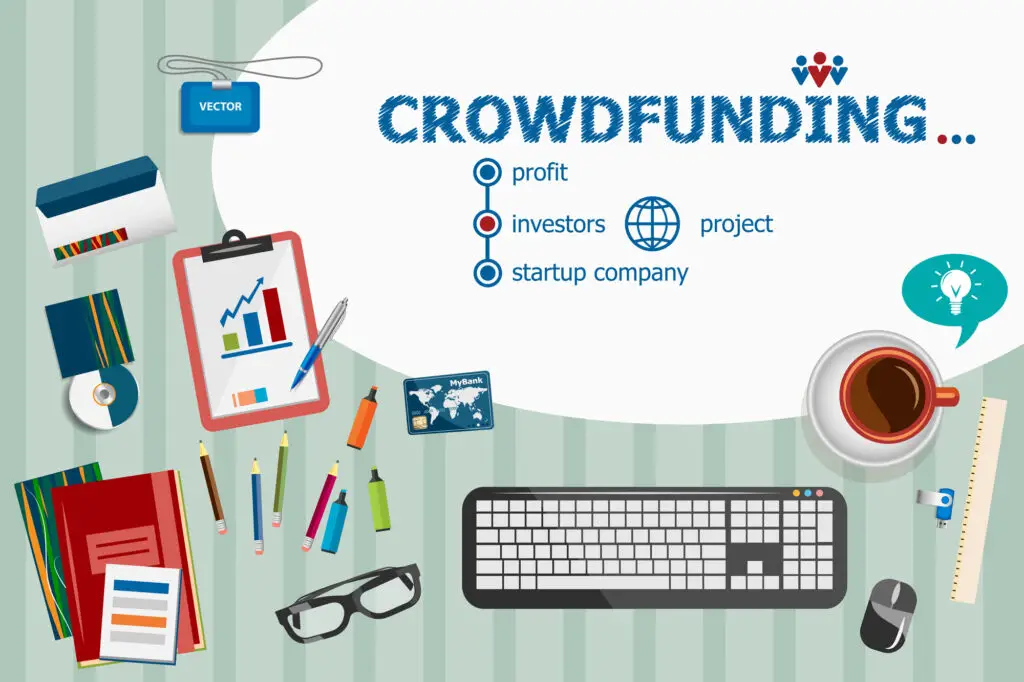 Small businesses may have difficulties raising money through traditional sources, such as bank loans or angel investors. Crowdfunding is an alternative way to raise money. Of all those seeking money through this method—and you probably know of and given to needy individuals using GoFundMe, as well as nonprofits—businesses account for 55%. Is crowdfunding something your business can use to start-up or expand?
Small businesses may have difficulties raising money through traditional sources, such as bank loans or angel investors. Crowdfunding is an alternative way to raise money. Of all those seeking money through this method—and you probably know of and given to needy individuals using GoFundMe, as well as nonprofits—businesses account for 55%. Is crowdfunding something your business can use to start-up or expand?
Types of crowdfunding
Crowdfunding is a way to raise a little bit of money from a lot of people. For small businesses, crowdfunding can be used to underwrite special projects as well as starting and growing companies.
The 3 basic types of crowdfunding are:
1. Loans
The lender expects repayment of the funds lent to you, plus interest. CrowdCrux lists the top 7 debt crowdfunding sites in the U.S. CrowdSpace lists the best debt crowdfunding platforms for the UK and Europe. According to one source, debt-based crowdfunding has the highest market share (compared with equity and gifts).
2. Equity
The investor gets an ownership interest in the business. Shopify lists the 10 best crowdfunding sites and platforms for 2024.
3. Gifts
The contributors give money because they just want to help. Contributors may receive a token in return, such as a sample of an item created with the donation, but nothing of real value. Websites include GoFundMe and Indiegogo.
Tax results
The IRS says the tax consequences depend on the type of crowdfunding being used. Revenue raised from crowdfunding isn’t includible in gross income if any of the 3 situations apply (i.e., if any of the types of crowdfunding described above are used without any variation):
- The money is loans that must be repaid. Loan proceeds are never taxable. Interest on repayments by a business is deductible (limitations apply only businesses that don’t qualify as small businesses).
- The money is capital contributions to the equity in exchange for an ownership interest in the business. The money increases owner equity on the business’s balance sheet.
- The money is gifts made out of detached generosity and without any “quid pro quo. The IRS cautions that a voluntary transfer without a “quid pro quo” is not necessarily a gift for federal income tax purposes.
If you are required to perform services or distributions are for the payment of property, then the money raised is taxable.
Tax reporting
The crowdfunding website or its payment processor may be required to report distributions of money raised, if the amount distributed meets certain reporting thresholds, by filing Form 1099-K, Payment Card and Third Party Network Transactions, with the IRS.
If required to file a Form 1099-K with the IRS, the crowdfunding website or its payment processor must also furnish a copy of that form to the person to whom the distributions are made. The reporting threshold for 2024 transactions is $5,000; it drops to $600 in 2025 and beyond. Form 1099-K is not required if the payments are not made in exchange for goods or services.
If you don’t recognize the filer’s name on the 1099-K. If the filer’s name or the amounts included on the Form 1099-K are a mystery to you, then use the filer’s telephone number listed on the form to contact a person knowledgeable about the payments reported.
If the distributions reported are not taxable. If non-taxable distributions are reported on Form 1099-K, you or your tax professional should report the transaction on Form 1040, Schedule 1, as follows:
- Part I – Line 8z, Other Income – “Form 1099-K Received for Non-Taxable Crowdfunding Distributions” to show the gross proceeds from the distributions reported on Form 1099-K.
- Part II – Line 24z, Other Adjustments – “Form 1099-K Received for Non-Taxable Crowdfunding Distributions” to show the non-taxable amount of the distributions reported on Form 1099-K.
These entries ensure that the taxable income is zero.
If you don’t follow these reporting rules with respect to a 1099-K received—you simply ignore the 1099-K—the IRS may contact you for more information.
Final thought
Crowdfunding may be the money solution for your business. Be sure to understand how crowdfunding works so you can select the type of crowdfunding to use and the tax implications of your choice.
Find more information about loans and crowdfunding in this list of blogs.


